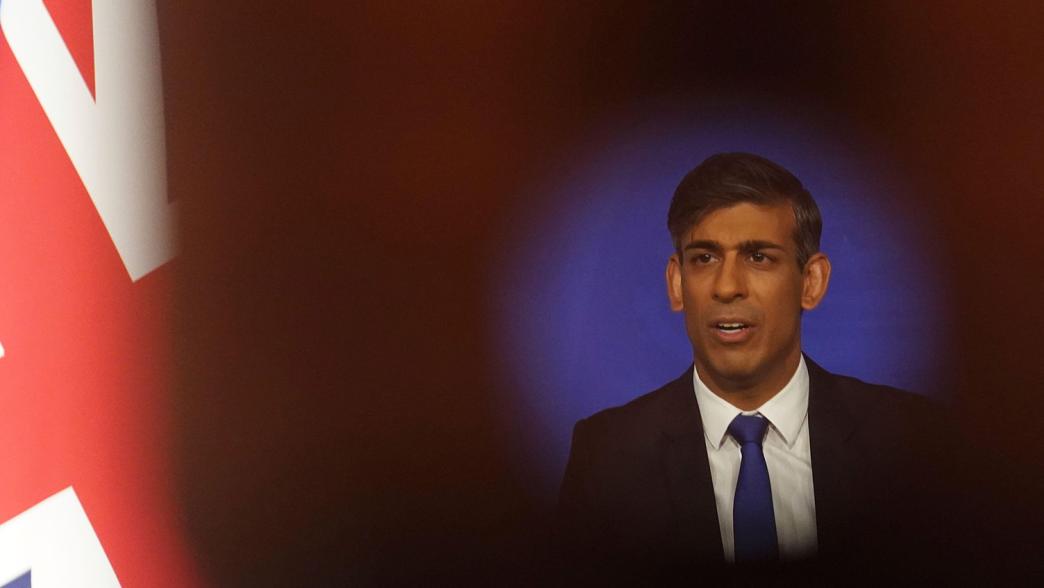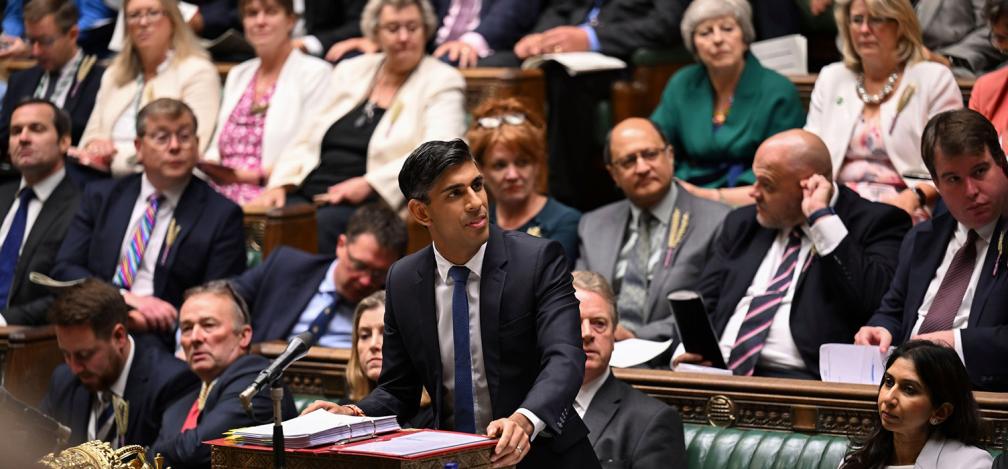What is in the government's new Rwanda asylum plan?
How will Rishi Sunak's Rwanda treaty and "emergency" immigration bill work?

The government has set out the details of its plan for removing asylum-seekers to Rwanda, in the form of the treaty signed on 5 December, and the Safety of Rwanda (Asylum and Immigration) Bill published on 6 December. What are we to make of these, and what might happen next?
What was the Supreme Court’s verdict?
The Rwanda scheme was declared unlawful by the Supreme Court (agreeing with a majority of the Court of Appeal) on 15 November. This was because of the risk that asylum-seekers sent to Rwanda would be returned, directly or indirectly, to their country of origin where they would “face a real risk of ill-treatment in circumstances where they should not have been returned at all”. This breached the principle of “non-refoulement” in international and national law.
The government responded by saying it would (1) agree a treaty with Rwanda providing for additional safeguards, and (2) bring forward “emergency legislation to confirm Rwanda is safe”.
What does the new treaty say?
The new treaty signed by home secretary, James Cleverly, and the Rwandan foreign minister differs in material ways from the previous memorandum of understanding considered by the Supreme Court.
First, it is a “formal” treaty, binding on the two countries under international law. This means it will be subject to scrutiny by parliament under the terms of the Constitutional Reform and Governance Act 2010. The government must lay the treaty before both Houses of Parliament for 21 days, after which it can be ratified unless the Commons has objected to it.
Secondly, the treaty contains significant new safeguards and assurances about how people removed from the UK to Rwanda will be treated, and how their claims to asylum will be handled. In particular the treaty provides that Rwanda cannot send a relocated individual (even if not granted refugee status) to any other country – except back to the UK, if the UK so requests. There is also to be an independent monitoring committee, a joint committee to discuss best practice, and a new appeal body.
(Article 19 of the treaty also makes provision for the resettlement of some of Rwanda’s most vulnerable refugees in the UK.)
What is in the “emergency bill”?
The Safety of Rwanda (Asylum and Immigration) Bill is a rather extraordinary piece of legislation. That is no great surprise: it is trying to do extraordinary things:
- reverse by law a finding of fact by the Supreme Court (that Rwanda was not safe for asylum purposes);
- to a large extent (though not completely) rule out further legal challenges in the courts; and
- steer a course between those MPs (including former home secretary, Suella Braverman and, it seems, the former immigration minister, Robert Jenrick) who wanted to close off all possible grounds of challenge under either national or international law; and those who weren’t ready to do quite such violence to the rule of law and the UK’s international commitments.
For good measure the bill includes lofty (as well as unnecessary and/or self-serving) statements about parliament being sovereign and the validity of an Act being unaffected by international law. It is also very unusual (though not unique) in being accompanied by a statement from the home secretary that he cannot certify it as being compatible with the European Convention on Human Rights (ECHR).
The main point of the bill is (as foreshadowed) to declare that all “decision-makers” (including courts and tribunals) are to treat Rwanda as a “safe country”. In particular a court or tribunal is not to consider any claim that Rwanda will not act in accordance the Refugee Convention, the new UK/Rwanda treaty or its other international obligations, or will fail to give fair and proper consideration to an asylum claim.
Clause 3 of the bill disapplies relevant provisions of the Human Rights Act 1998, as well as any provision made by or under the Immigration Acts, any other provision of domestic law (including common law) and any interpretation of international law by the court or tribunal.
Thus the bill excludes most grounds of challenge in the domestic courts – but not quite all.
- Clause 3 does not exclude claims under section 4 of the Human Rights Act 1998, under which the court can make a declaration that an Act of Parliament is incompatible with the ECHR (as noted the home secretary has already accepted that the bill may be incompatible). Such a declaration is however not binding on the government.
- Clause 4 does to a limited extent allow claims on the grounds that Rwanda is not a safe country for a particular person “based on compelling evidence relating specifically to the person’s individual circumstances” (rather than grounds that Rwanda is not a safe country in general). However such claims are excluded if they relate to the risk of someone being subject to refoulement from Rwanda to another country – in other words they must relate to the safety of conditions for the individual in Rwanda itself.
What the bill cannot do is prevent claimants going to the European Court of Human Rights in Strasbourg if they have been unable to enforce their rights in the domestic courts. The Strasbourg court would not be bound by the UK-Rwanda treaty or by the UK legislation. It would perform its own assessment, on the latest evidence available, as to whether there was a breach of the ECHR.
However clause 5 of the bill allows ministers to decide whether to comply with (or ignore) interim measures of the Strasbourg court relating to removals to Rwanda, and UK courts are precluded from having regard to such measures.
Rwanda scheme: the government’s next steps in parliament
What role would parliament play in the government's steps to proceed with its Rwanda asylum plan?
Read our explainer
Does the bill satisfy Conservative MPs?
Where does the bill lie on the scale between full fat and skimmed? It’s probably semi skimmed. It does not go to the extremes favoured by Suella Braverman, so as to exclude all forms of court challenge. Evidently it has not satisfied Robert Jenrick, who resigned as immigration minister. But it does disapply relevant aspects of international law and potentially puts the UK in breach of its treaty obligations, in particular under the ECHR.
So the bill may face resistance or amendment both from MPs who think it doesn’t go far enough, and from those who think it goes too far, particularly in overriding international law. The House of Lords might also give it a going-over on those grounds.
There is an irony in the government relying on the binding nature of one international treaty to solve the Rwanda problem, while at the same time overriding others which it judges to get in the way. It seems that point has occurred to the Rwandan government itself, which has said it is not prepared to continue with the deal unless the UK complies with international law.
Could there be further court challenges?
Even if the treaty is ratified and (which is less certain) the bill is passed in its current form, there may well be further court challenges. As mentioned, the bill allows claims under section 4 of the Human Rights Act and certain challenges based on an individual’s particular circumstances.
It is not impossible to imagine other forms of challenge, for example if compelling evidence emerges that the Rwandan authorities are systematically departing from the standards set by the treaty. The Supreme Court made clear that “significant changes” needed to be made to Rwanda’s “procedures, understanding and culture”. It said “the necessary changes may not be straightforward” and doubted whether they could be achieved “in the short term”. What if, despite the treaty, there is significant evidence of things going wrong in Rwanda, of asylum seekers slipping through the net and being subject to refoulement or otherwise mistreated? In that case, the argument might run, parliament (even by the strong deeming provision in clause 2 of the bill) cannot have intended to obliterate real-life evidence of serious human rights abuses.
In any event, as mentioned there remains the possibility of claimants going to Strasbourg, of that court making orders to prevent removal to Rwanda – and of the UK government ignoring them.
Both in parliament and the courts there could still be choppy waters ahead.
- Political party
- Conservative
- Position
- Prime minister Home secretary
- Administration
- Sunak government
- Department
- Home Office Number 10
- Public figures
- Rishi Sunak Suella Braverman James Cleverly
- Publisher
- Institute for Government